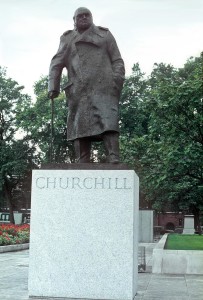In the EU last week, talk about the likelihood of a Grexit and a Brexit grew to be almost deafening.
Greece
On June 18th, many Greek citizens made it abundantly clear through street protests that they were scared of the ramifications should Greece depart the eurozone by default.
 But that is not all that happened last week.
But that is not all that happened last week.
The German news Deutsche Welle (DW) headline for June 17, 2015 read,
“Greek central bank warns of uncontrollable crisis -The Greek central bank has said all sides concerned need to go the extra mile to prevent Greece from defaulting and dropping out of the eurozone. It added that even the country’s membership in the EU was at stake.”
The European Central Bank twice extended a “liquidity lifeline” after depositors withdrew more money than Greek banks could safely cover.
And on June 19, 2015 DW’s headline read,
“‘Enough is enough’: German industry urges Grexit — Europe’s biggest economy is growing increasingly impatient with Athens. Some industry leaders are now calling on creditors to cut their losses, and let Greece drop out of the eurozone.”
With good reason they feel, because “the protracted negotiations are threatening the economic stability of the entire eurozone.”
UK’s Economist magazine’s June 20, 2015 issue ran an article comparing the situation to two people who, having come to despise each other, are on the verge of a nasty divorce.
Furthermore, Greece has been getting cozy with Russia.
With the deadline for the June 30th loan installment looming, on Friday (June 19th) finally some signs of possible reconciliation appeared.
Britain
The same week, on June 18, 2015, several newspapers ran a UK Reuters story with a headline that read,
” ‘Brexit’ could be UK’s own Waterloo, France’s Le Monde says”
The magazine, Le Monde, ran its article in English,  no less. Like one deeply concerned brother to another, Le Monde strove to persuade England by these words,
no less. Like one deeply concerned brother to another, Le Monde strove to persuade England by these words,
“Another spectacular achievement of Waterloo … may have been missed : two centuries of Anglo-French peace. Never again have we been at war with each other, except on rugby fields. …The country which cornered Napoleon cannot succumb to Nigel Farage. Today, we solemnly say to our friends across the Channel : beware, Brexit could be your Waterloo ! … Messieurs les Anglais, don’t let the sirens of a fake independence pull you away from the continent. Just as in 1815, your future is in Europe”.
Though Prime minister David Cameron’s party gained more seats than predicted in UK’s general election last month, UK Reuters reminded readers that,
“Under pressure from Farage, leader of the anti-EU UK Independence Party, and from eurosceptic members of his own ruling Conservative Party, British Prime Minister David Cameron has agreed to hold an in-out referendum on Europe by 2017 after trying to renegotiate some terms of Britain’s membership”.
A number of EU countries have already rejected Britain’s requests for changes, according to UK newspapers. Still, British business is said to be overwhelmingly in favor of staying in the EU, and one poll indicated now so are the highest number of voters in 24 years (British lawmakers, well, that’s another story).
UK Reuters also said a new crisis could flip voter attitudes back. Ireland and Scotland, determined to stay in the EU, are working on Brexit contingency plans just in case.
Read the DW article about Greek central bank here
Read the DW article about the German industry mood here
Read the Economist Divorce article here
Read the UK Reuters Brexit original here